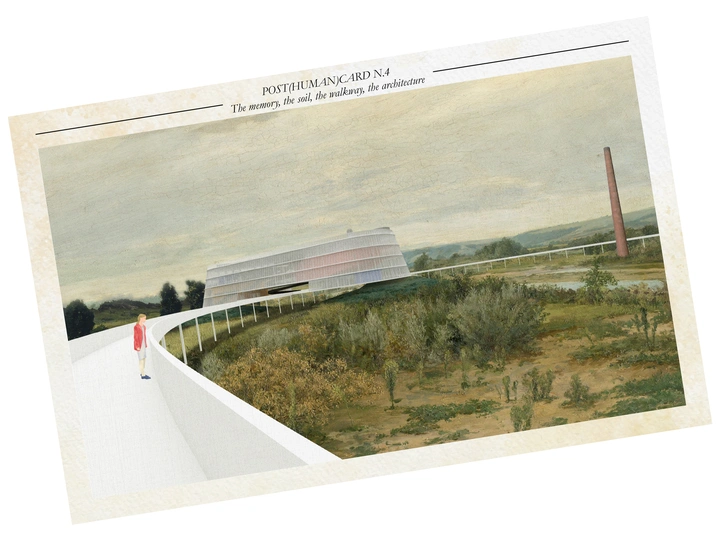Testing Bioremediation

Flavio Martella
Maria Vittoria Tesei
The team is m²ft architects (established in 2018 by Maria Vittoria Tesei, Architect and Urbanist, and Flavio Martella, Ph.D. Architect and engineer) and Mariacristina D'Oria, Ph.D. Architect ([ReC]).
Maria Vittoria, Flavio, and Mariacristina are Madrid-based Italians who, since 2021, have collaborated on several architectural and research projects, also participating together in international competitions such as the Europan17 AustriaXSlovenia where they gained a Runner-Up prize and the Concentrico Festival competition where they received a special mention.
Separately, as m²ft architects, they have received several prizes in international architectural competitions of schools, public spaces, strategic masterplans, and also awards and recognitions for architectural research through many books, scientific articles, and conferences. Apart from receiving at the Europan17 competition both the Runner-Up prize in Celje (Slovenia) and the Special Mention in Breda (NL), they received the First Prize for the “Futura'' Competition for a Middle School in Battipaglia (IT), as well as other prizes in other competitions in Italy.
Mariacristina D'Oria is establishing Reverberating Cartographies [ReC], a practice on the move about architecture, research, performance, and landscape, between Trieste and Madrid. She designed various multimedia installations (Delft, Trondheim, Hamburg, Trieste, Uppsala, Ljubljana) and urban projects, combining research and design. Recently, she developed preliminary feasibility studies for urban areas, including the former military site in the UNESCO town Cividale del Friuli (IT, 2022) and the old Tram station in Gorizia (IT, 2023). Researcher (ETSAM, Madrid), she published her work in various books and scientific articles.
The current biodiversity, climate and environmental crises can be interpreted as the result of a human/non-human relationship in which the former has dominated and tried to control the latter. Our research moves from the extremely polluted context of the Stara Cinkarna former industrial site in Celje (SI), of the Europan17, and seeks to further deepen the experimental and trans-disciplinary field of bioremediation processes.
The project activates a regenerative process of recovering and caring for the non-human, enacting a metamorphosis of the landscape that, once regenerated, returns to coexist with the human sphere. Working with time and human separation from the damaged environment result to be the most effective strategy to speed-up the recovery.
Since the pollution is spread within air, soil, and water, we propose to experiment with four different planting strategies:
-Phytoextraction through hyperaccumulation: heavy metals-accumulator plants to reduce organic and inorganic pollutants. Saturated biomass is then collected and sent for controlled disposal
-Phytoextraction through arboreal species such as coppice wood essences
-Bioremediation through metal-tolerant plants contributes to the redevelopment of the soil
-Phytofiltration through plants allows the development of a rich bacterial flora, which carries out the phytodepuration
To help foster the bio-remediation we also integrate these long-term nature-based designs with more immediate actions through the use of artificial tools to help accelerate the whole operation such as air depuration devices, plant nurseries and phyto-purification tanks. These will also help raise the population awareness and serve as a pedagogical tool.
Starting from this point, we want to develop an applied research project to activate a collective trans-disciplinary reasoning on these issues and to test solutions through the definition of pilot projects and prototypes (on site or other sites with similar characteristics).